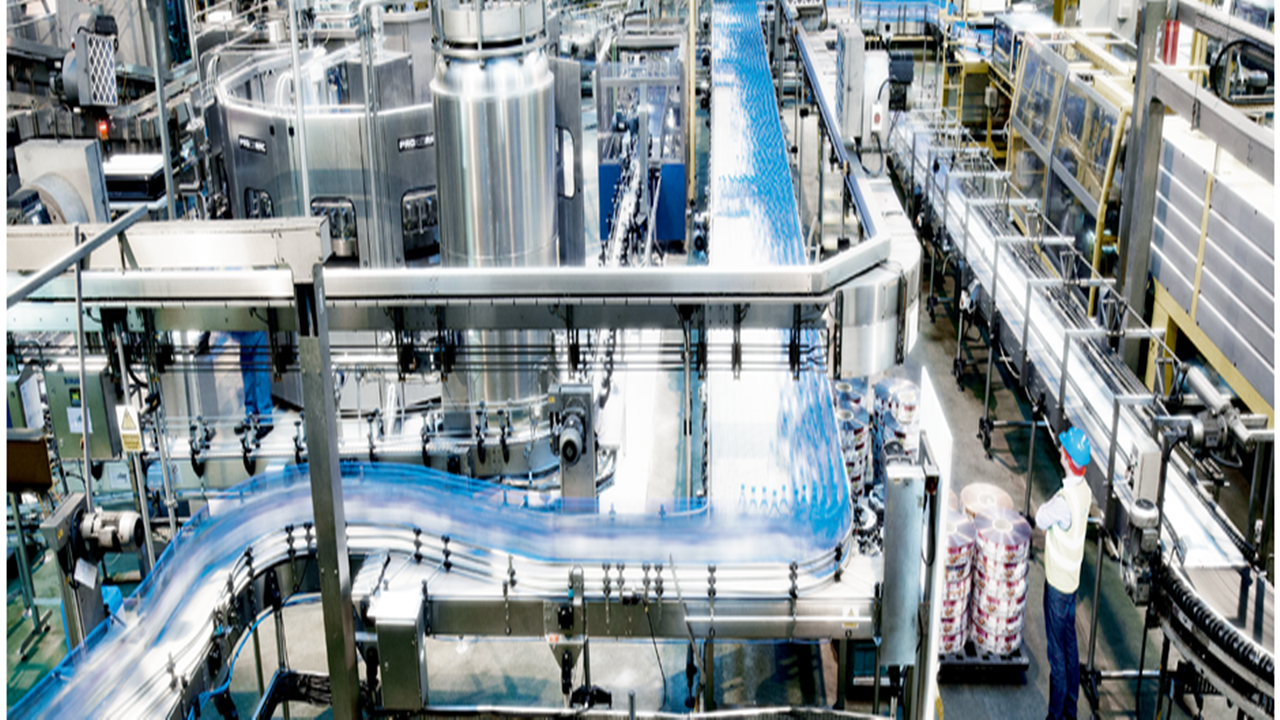
Five Benefits of Industrial Automation For Your Business
Whether you’re looking for a way to increase efficiency or simply cut costs, industrial automation offers many benefits. It can eliminate human errors, paper forms, and errors in manufacturing processes. Read on to learn more. And don’t forget about the many other benefits. Here are five ways industrial Automation can benefit your business. Let’s explore them together! Let’s start with the benefits. Here are some of them.
Business process automation
While some processes can be completed manually. Other processes can be automated to save both time and money. Some businesses have administrative workloads that simply cannot be automated. Fortunately, BPM workflow software can help. By automating the process, businesses can improve accountability, transparency, and execution. Here are five ways business process automation can benefit your business. Listed below are just a few ways business process automation saves time and money:
Automated business processes can save your company time and money by reducing the number of people needed to complete the process. By reducing the number of employees performing routine tasks, you can free up workers to focus on more important projects. Moreover, plant automation reduces errors and saves employees’ time. As many as 80 per cent of plane crashes occur because of human error, which means automating business processes can save your business time and money.
Business process automation can improve customer service. By automating the processes that are routine but have high human error rates, businesses can ensure that every customer will have a positive experience. These higher customer satisfaction levels create more loyalty and trust among customers. Moreover, automated processes can handle routine daily tasks for small businesses. Artificial intelligence can flag issues and prompt human intervention when necessary. This way, business owners can focus on the things that will benefit the company the most.
Elimination of human error
Elimination of human error in industrial automation can be achieved by minimizing human factors that influence performance. Engineering and administrative controls can reduce the likelihood of error and can be effective in reducing the magnitude of human-induced error. Reducing complexity with simple procedures and providing reversal facilities can help to reduce human error. In addition, feedback and predictability can help operators to associate actions with system responses. These controls can also help eliminate the causes of error through adapted human reliability techniques and replacement of faulty design features.
When humans make mistakes, they do not necessarily do so intentionally. Erroneous actions are actions that are not in accordance with the intended outcome or set of rules. In other words, human errors can cause a task or system to perform outside acceptable limits. This is often the case in accidents, from aircraft crashes to process plant explosions. Human error is considered one of the key factors affecting the reliability and efficiency of systems.
When human operators no longer need to manually load or move material. They can be replaced by robots. But operators must know how to use the automated industrial conveyor systems that may include conveyor roller motors and alignment sensors. This new task requires increased training for operators, as the potential for human error increases. With proper training, operators can avoid errors in the future. They will also be prepared for the new tasks that will follow. The benefits of automated systems are numerous, and they are attracting manufacturers everywhere.
Elimination of paper forms
The elimination of paper from the production process is becoming a popular trend in manufacturing companies. It brings many benefits for clients and investors. However, the process of eliminating paper forms isn’t as easy as it seems. It requires dedication on the part of management and employees. Eliminating paper from the production process requires managing industry data, which will reduce the workload of operators and engineers. The first step to a paperless manufacturing environment is to understand the advantages of eliminating paper.
For one, removing paper forms reduces costs and increases efficiency. In fact, paper forms contain 50% more errors than mobile forms, and it takes time to fix them. Furthermore, the time required for filling out paper forms increases the risk of human error, which can negatively affect the bottom line. Moreover, eliminating paper forms allows for better management. It can be standardized to store information with rules. As consumers get used to digital forms, it will continue to decline in popularity.
Elimination of errors in manufacturing processes
Manufacturers are constantly looking to increase efficiency and quality to maintain their competitive edge. While quality and efficiency are not everything, these two things go hand in hand. Improving both will help a company improve its product and push into new markets. Error-proofing manufacturing processes is a vital part of quality assurance. A defect or error in a manufacturing process is an anomaly created when a process diverges from a standard route. It results in an inferior product and, ultimately, customer dissatisfaction.
Industrial automation increases worker efficiency by reducing human error during everyday tasks. By eliminating human error from the equation, workers can focus on higher-level duties, such as managing multiple processes. Data logging helps improve product quality, including trends, which prevent defects and spoilage. Industrial automation also increases productivity by helping enterprises keep track of every step in the manufacturing process. Ultimately, this process makes an enterprise data-driven, with the power to predict product quality, cost, and efficiency.
As manufacturing operations become more automated, automation solutions improve the flexibility of their machinery and processes. Organizations can quickly modify their processes and make adjustments to meet market demands. IndustLabs can help companies upgrade their facilities and eliminate errors in manufacturing processes. Automation solutions can help reduce costs, increase human capacity, and increase product quality. These benefits are reflected in the increased productivity of the workforce. The advantages of industrial automation and plant automation cannot be overstated.
Reduced operating costs
Among the direct costs that most businesses face, unit labor is the most significant. According to the Bureau of Labor Statistics, unit labor costs rose by 29% in the second quarter of 2017, the highest increase since the Bureau began tracking this data. This increase is further compounded by the fact that real hourly compensation in manufacturing is up 14% QoQ and 4% YoY. To cut costs, businesses should reduce their labor footprint. Fortunately, industrial automation and plant automation can help.
One of the key benefits of industrial automation and control is that it reduces unscheduled downtime. Using sensors and software with machine learning can detect problems and send maintenance messages before they escalate into full-scale maintenance issues. Moreover, plant automation can detect issues like air leaks that would otherwise go undetected. All this results in a healthier bottom line and more competitive companies. Despite the initial cost, the benefits of plant automation are substantial.
In addition to reducing operating costs, one of another benefits of industrial automation and control also helps firms increase production scope. With increased plant automation, one factory can produce a wider range of products. Diversification is as important to firms as lower unit labour costs. Additionally, one of another benefits o industrial automation and control is that it reduces lead times and enables quicker delivery, while allowing for better use of stock and cash flow.
Further benefits of industrial automation and control is that it helps companies improve their safety records and reduce the risk of human error. Moreover, automated manufacturing is cost-effective, and it makes a difference to any manufacturing company’s bottom line.
Improved employee engagement
Industrial automation can improve employee engagement. Employees can spend more time doing meaningful work. It can free up time that would otherwise be used for rote tasks. Many workers are crushed by mundane tasks. Such as data entry, filing paperwork, sending invoices, and responding to emails. Furthermore, these tasks do not develop their skills and knowledge base. Instead, they waste time on monotonous tasks that aren’t productive. Automation can help eliminate these monotonous tasks and free up workers’ time to do more interesting work.
Employee engagement is an important part of maintaining a high-performing workforce. Employees who feel that their work is meaningful and that their efforts are valued will work harder to achieve the organization’s goals. Improving employee engagement takes careful planning and work, but it will pay off in dividends in the end. Employee engagement has a direct correlation to profitability, employee retention, and productivity. To improve employee engagement, industrial automation can help improve employee motivation, productivity, and profitability.
Employee surveys
Employee surveys provide valuable information. Surveys can also be designed to capture information about employee attitudes. By using survey tools, manufacturers can create, distribute, and analyze employee surveys in a timely manner. Using these surveys, managers can get a holistic perspective on their employees’ needs and expectations. This can help them create performance plans and empower managers. Providing employees with the same data helps improve employee engagement. Once the data is shared across the organization, concerns that used to be subjective can be addressed objectively.
That’s all about Five Ways Industrial Automation and plant automation Can Benefit Your Business. Hope so, you found this article helpful if you were looking for some detailed information about various Ways Industrial Automation Can Benefit Your Business
Share your valuable feedback about this post in the comment section. Also, keep visiting the website uptimeauto.com for more updates.


